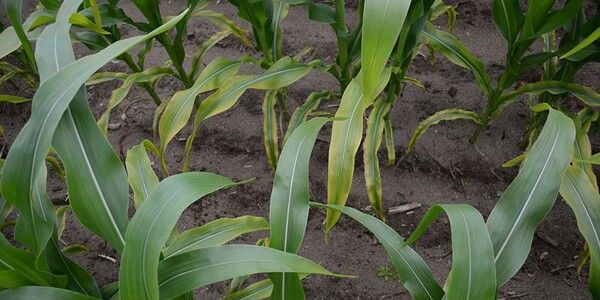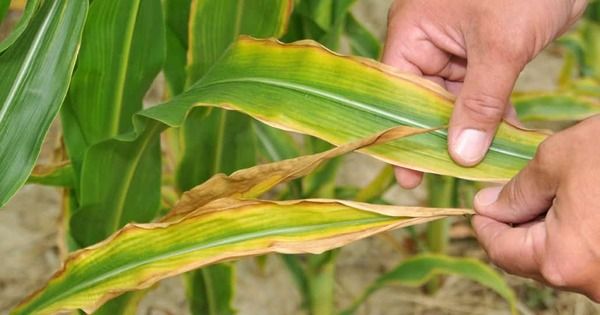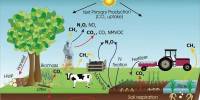Potassium deficiency in agricultural soils is a mostly unknown but potentially substantial threat to global food security if not addressed, according to new research conducted by researchers at UCL, the University of Edinburgh, and the UK Centre for Ecology and Hydrology.
The study, published in Nature Food, discovered that more potassium is being withdrawn from agricultural soils than being added in many parts of the world. It also makes a number of recommendations for how to address the issue.
Potassium is an essential nutrient for plant growth, aiding in photosynthesis and respiration; a shortage of it can impede plant growth and diminish crop harvests. Farmers frequently apply potassium-rich fertilisers to their crops to replenish depleted nutrients, but supply constraints can prevent their use, and there are ongoing concerns about their environmental impact.
According to the researchers, approximately 20% of agricultural soils worldwide suffer from severe potassium deficiency, with specific regions experiencing more critical shortages, including 44% of agricultural soils in South-East Asia, 39% in Latin America, 30% in Sub-Saharan Africa, and 20% in East Asia, owing largely to more intensive agricultural practices.
The environmental impact of potash mining and usage in agriculture requires more investigation. We still don’t fully grasp the impact of artificial potassium enrichment on neighboring ecosystems.
Will Brownlie
According to co-author Professor Mark Maslin (UCL Geography), potassium is important to maintaining crop yields that feed the world, and its loss poses a substantial threat to the food security of millions of people worldwide. This is an underappreciated issue that must be addressed by a variety of initiatives as the world’s population grows.”
Farmers frequently use potash as a fertilizer to replace potassium levels in their fields, although the mineral’s price can fluctuate significantly. Potash production is extremely concentrated, with only twelve nations controlling the approximately £12 billion international market for potassium fertilisers, with Canada, Russia, Belarus, and China supplying 80% of the world’s total raw potash.
The researchers highlight how in April 2022, the price of potash increased 500% above the previous year following a “perfect storm” of factors, including rising fertilizer demand, escalating fuel prices, recovery from the pandemic, a range of government actions around the world, and the Russian invasion of Ukraine. Russia and Belarus together export about 42% of the word’s potash supply, but following the Russian invasion of Ukraine in 2022, the UK, US, Canada and the EU imposed import sanctions on the two countries, disrupting global supplies and exacerbating the price spike.
Since the initial price spike, the cost of potash has fallen by about 50%, but remains elevated, raising concerns that farmers will not be able to access sufficient fertiliser to maintain food supplies under the current system.

According to co-author Dr. Peter Alexander of the University of Edinburgh, “the volatility of potash prices has major implications across the global food system.” Access to potassium is critical for farmers to maintain agricultural yields, but the recent high price of potash makes it more difficult for the most vulnerable to get.
This market concentration and fragility is one of the reasons why researchers have advocated for improved potassium management and a strong international coordinating framework. There are currently no national or international laws or regulations guiding the long-term management of soil potassium in the same way that systems are being built for other critical crop nutrients such as nitrogen and phosphorus.
In 2021, global potash consumption reached 45 million tonnes, with global production projected to rise to about 69 million tonnes in 2025 with new projects starting up in Belarus, Canada, Russia, Australia, Eritrea and the UK. However, potash mining has raised human rights concerns and has significant impacts on the environment. Potash mining generates millions of tonnes of refuse mostly composed of sodium chloride salts, which can leach into soils and salinise soil and water tables, harming plants and animals.
The effects of potassium fertilizer runoff on local ecosystems are little understood, and the researchers propose further investigation.
Lead author Will Brownlie of the UK Centre for Ecology & Hydrology stated, “The environmental impact of potash mining and usage in agriculture requires more investigation. We still don’t fully grasp the impact of artificial potassium enrichment on neighboring ecosystems. By managing nutrients such as nitrogen, phosphorus, and potassium properly, we may reap numerous benefits, including less pollution, increased agricultural yields, and reduced nutrient loss. It’s about aligning our strategies for better farming results.”
The researchers put forward six recommendations for policies and practices to prevent potential crop yield declines, safeguard farmers from price volatility and address environmental concerns. The recommendations include:
- Setting up a global assessment of current potassium stocks and flows to identify the most at-risk countries and regions
- Establishing national capabilities for monitoring, predicting and responding to potassium price fluctuations
- Helping farmers maintain sufficient soil potassium levels with further research about the yield implications of limited potassium in various crops and soils
- Evaluating the environmental effects of potash mining and developing sustainable application practices
- Developing a global circular potassium economy that minimises the use and maximises the reuse and recycling of the nutrient
- Increasing intergovernmental cooperation through the UN and other agencies to develop global policy coordination akin to what’s been developed for nitrogen
















